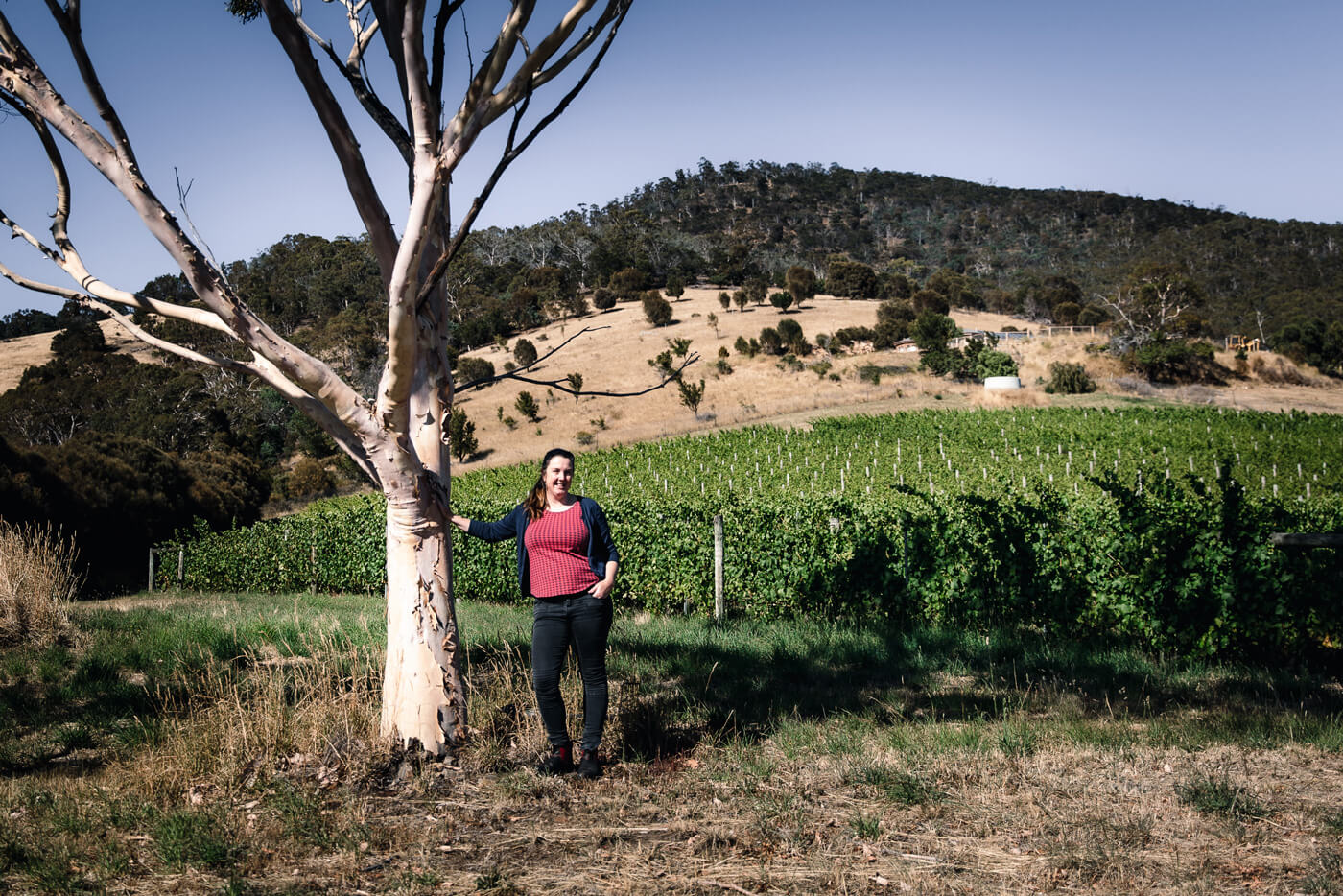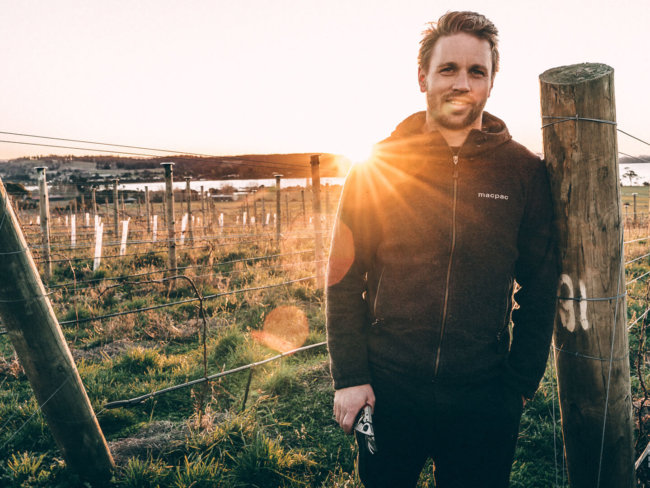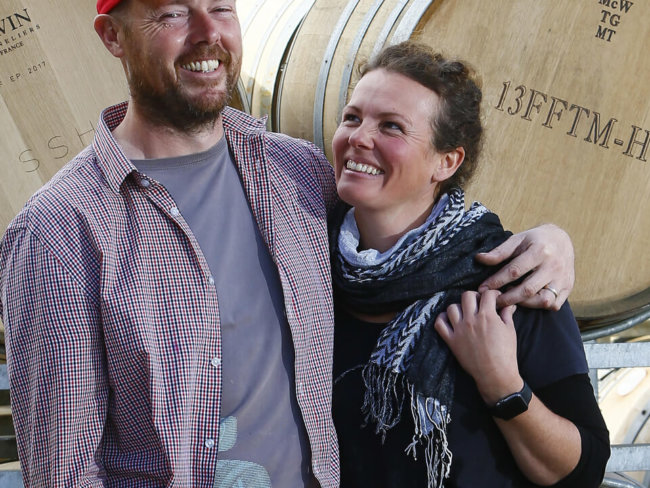Quiet Mutiny is Greer Carland’s solo venture, launched after over a decade of contract winemaking for innumerable well-known Tasmanian names. She plays to the Apple Isle’s strengths with tiny batches of riesling – which sees some skins – and pinot noir, with a fragrant shiraz having joined the line-up from the 2019 vintage – as well as a riesling-based vermouth waiting in the wings.
Carland’s choice of the name Quiet Mutiny for her own label is a metaphor of sorts. Having spent much of her career making wines for numerous clients – she was a senior winemaker with Winemaking Tasmania (the largest contract winemaker in Tasmania) for 12 years – Carland slipped away from her role in 2016 to pursue wine her way, to show what she sees in Tassie fruit through her unique lens.
A classic riesling gains complexity from skin contact and wild fermentation, while pinot noir from the Coal Valley sees a fifth of the fruit left as whole bunches, about the same as the syrah, which is sourced from the Derwent Valley. (Carland also makes wines under the Laurel Bank label, which is her family’s vineyard in Granton that they planted in 1986.)
“My time in contract production with Tasmanian wines and growing up on the family vineyard crystallised my focus on the beauty, not only of Tasmania, but the strength and focus of the grapes we grow here. I strive to make wines that capture this beauty and expression with an uncomplicated process.”
Charlotte Badger is the real-life hero of Carland’s metaphor, convincing the crew of the convict ship Venus that she was being transported on to abandon the captain and his landing party at Port Dalrympe, way back in 1806. She was clearly persuasive, as the ship was apparently then pointed across the Tasman, with New Zealand in its sights. It is unclear whether Charlotte, or indeed the ship, ever got there, but that’s not part of the metaphor. Carland leaves the comparison at the “taking control and steering her own course” moment. Best that way.
Prior to working with Julian Alcorso at Winemaking Tasmania for 13 vintages, Carland had mustered experience in three Australian states, as well as in both South and North America, and France. She also holds a winemaking degree from the University of Adelaide, graduating in 2000. All that travel was part escape at the time, a venture into making a career in the wide world of wine, but home tugged at her. “The further I travelled, the stronger the pull to return to Tasmania.”
Having crammed in a lifetime’s worth of winemaking into a relatively short time, Carland’s first wines were from the 2017 harvest. “I commenced with a riesling and a pinot noir. I made a really small batch of riesling, as I wanted to trial fermenting some wild and doing some skin contact. I remember thinking the wild character of the riesling stood over the fruit at bottling, and I felt that I had not achieved what I set out to do. Thankfully, a couple of months in the bottle and that lovely white flowers and lime fragrance bounced back and reassured me I was on the right track!” That step into the unknown, away from the conventions that guide many a winemaker, is a key feature of the Quiet Mutiny wines, and Carland’s journey.
And while she has had significant experience in running a technologically advanced winery, with multiple clients, her winemaking approach is purposefully simple. “My production methods in the rustic winery would be considered lo-fi, although I would rather communicate my intent as an honest expression of the beautiful regions I source from, with a desire to create styles that are inclusive for wine consumers to share my joy of Tasmania in a glass.”
The other focus for Carland, both in the winery and from the vineyards she sources from – which include her family’s vines – is sustainability. “We are fortunate that our fruit sources are from focused and skilled growers who know each of their vines intimately and manage them with care and a long-term future in mind. A soft footprint is an important part of our ideals, and as such we are a participant in VinØ, Wine Tasmania’s sustainability program, which helps us measure and improve our metrics over time.”






